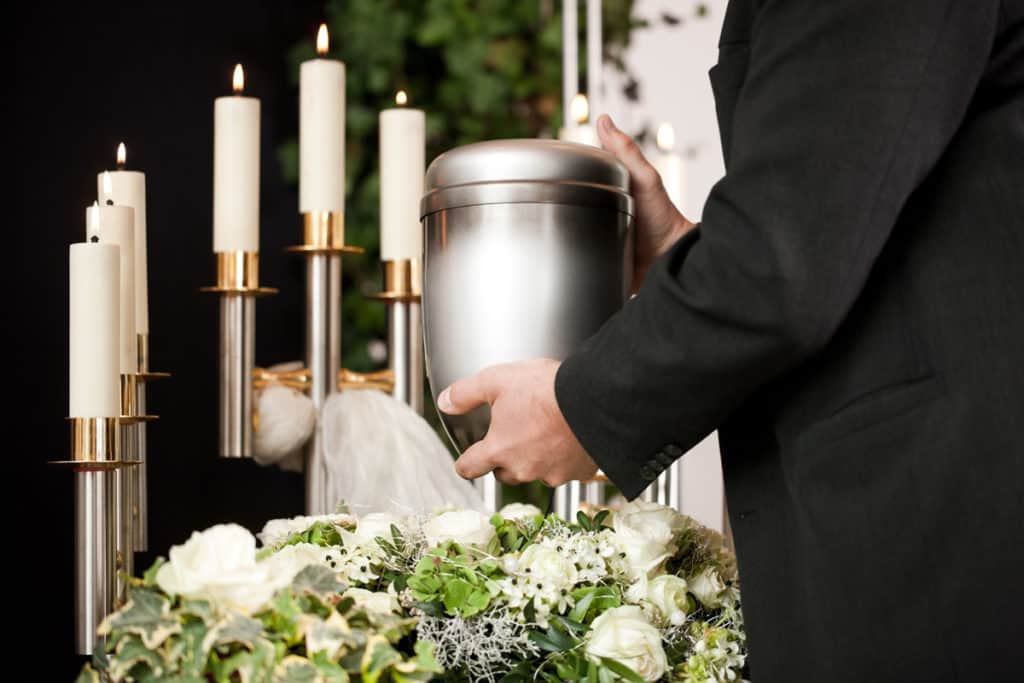When you first receive news of a death, be it expected or unexpected, the initial reaction is shock. Even if you have nursed a loved one through illness or old age, it can still be numbing and distressing when they finally pass away. If you are the next-of-kin and responsible for making the funeral arrangements or executing the will, you can be overwhelmed with decisions to make immediately.
Pronouncing the death
Most deaths do actually occur at a hospital and if a loved one passed away in a hospital, hospice or nursing home the staff will have already have had the death formerly pronounced by a medical practitioner. If a loved one happens to pass away at home you do need to call 911. Paramedics will transport your loved one to the hospital where a doctor can formerly pronounce the death. In some areas, paramedics may pronounce a death eliminating the need to transport the deceased to the hospital.
What needs to be done immediately on news of the death?

The first things you will need to do are to make a few phone calls to notify people of the death. If your loved one passed away in a hospital or nursing facility, the staff can usually assist you with some of the initial arrangements, such as contacting the funeral home you have selected. If your loved one passed away in a hospital, they may also be able to hold the body for a short period in their morgue, whilst you make arrangements with a funeral home. It can be helpful to make initial phone calls to immediate family and your minister (if required) to enlist some support with communicating the news and making arrangements.
Enlisting the services of a funeral professional
One of the first main tasks to be undertaken is to enlist the services of a funeral director. The funeral director needs to collect the deceased from the place of death and consult with you about what kind of funeral arrangements you require. If the deceased did not have a funeral plan and you have not already decided upon a funeral home to employ, this can be a daunting task to have to undertake immediately. It is a good idea to get some help from family or friends to decide which funeral home to contact. You may need to make a few calls to check the prices and availability of schedules with more than one funeral home.
Once you have decided upon a funeral director to work with, the funeral firm can support you with a number of other aspects of arrangements that need to be taken care of.

What do I need to take to the funeral home?
When you make your first visit to the funeral home to make arrangements for the funeral there are a number of items that you should take with you:
- The deceased’s personal information – such as birth date, city, state of birth, social security number, parent’s names, marital status, and education information.
- Details of the insurance company if the deceased held life insurance or burial insurance. (It is recommended that you do not disclose details of the policy or amount if negotiating a funeral cost. But the funeral home will need to contact the insurance company to verify that the policy covers the funeral price.)
- Copies of any military discharge (DD214) paperwork for a veteran.
- Any cemetery deed paperwork.
- Any funeral preplan documentation.
If the funeral home is organizing the obituary or an online memorial for you, you may wish to take along a photo of the deceased. Likewise, if it is planned to have a viewing, visitation or an open-casket service, you should take along the clothes and any jewelry for preparing your loved one.
If a funeral or memorial service is to take place you may wish to gather together any special memorabilia to be displayed during the service.
Notify the deceased’s employer (if relevant)
If your loved one was working you will need to contact your loved one’s employer to notify them. You may also want to check about any outstanding pay and any benefits that may transfer to surviving family, such as life or health insurance cover.
Notifying Social Security
Social Security should be notified as soon as possible of the death. Your funeral director will generally file a notice with Social Security as part of the process of filing the death certificate.
Notifying Banks, Utilities & Other Authorities
It can be a mammoth task to contact all the companies and organizations that need to be notified in terms of closing or changing accounts, claiming benefits or terminating services. It can be a great help if the deceased had already put their affairs in order, but if not you will need to make a list and begin sending out written notifications. Some funeral homes will help you organize this, and even have resources to support you, such as template letters. You will need additional certified copies of the death certificate to be able to send multiple notifications out at the same time. Some entities will accept photocopies of a death certificate, whereas others require an original copy.
Listed here are some of the entities you need to notify of the death:
Estate executor
Attorney
Bank
Credit Cards
Life and health insurance providers
Accountant
Utility companies
Phone companies
Social Security Administration
Department of Motor Vehicles,
US Postal Service
Physician
Dentist
Veterans Administration
Voters’ registration office
Church
Home maintenance providers
Newspaper and magazine subscriptions
It is very important to protect the identity of your loved one from identity theft following his/her death. This has become a growing issue today with our virtual identities and online activities. The quicker you notify all entities about the death, you are ensuring that you protect your loved one’s identity.

Sorting out personal belongings
You need to take the time to grieve and allow yourself to adapt to your loss. The funeral and/or memorial can help with this process, allowing you to have the opportunity to say goodbye and experience your feelings. It obviously helps if you have a support network around you during this time. Many recently bereaved can find that it is the time after the funeral which is the hardest, when all the activity of arranging the funeral has gone, and there is time to focus on your loss.
At some point, you will need to go through and organize personal belongings. How and when you do this is all dependent on how you feel. Some people prefer to do it as soon as possible, others prefer to take some time. Do what is right for you, be guided by your own feelings and not those of others.
It can also help to have a close friend or relative that can help you with sorting through personal belongings. Sometimes the recently bereaved will even prefer to have someone take over the whole process of sorting through personal belongings.
Related Articles:
How To Save Money Arranging A Funeral
Resources:
Consumer Reports ‘What to do when a loved one dies’
Social Security – The Official Website of the U.S. Security Administration

